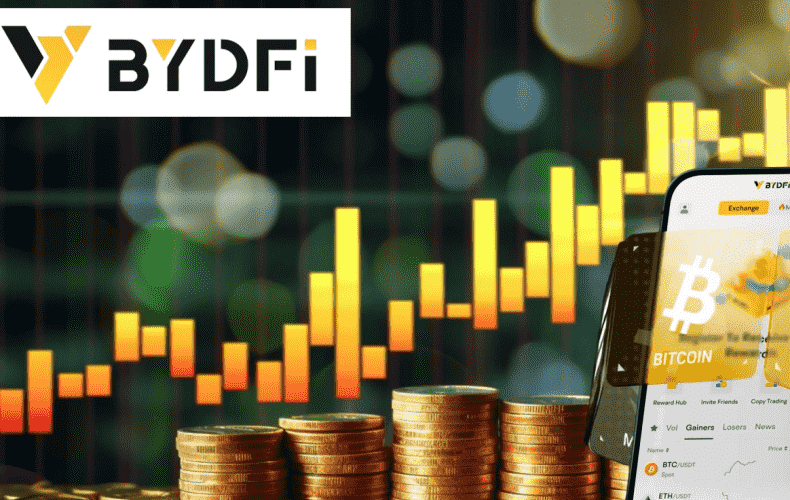
Bayern Munich 2025/26 Season Preview: Challenges Ahead for Kompany's New-Look Side
Section: Arts
 Inflation, the persistent increase in the general price level of goods and services in an economy over a period of time, has become a topic of increasing concern worldwide. As prices continue to rise, consumers face higher costs of living, businesses grapple with increased production expenses, and policymakers confront the challenge of maintaining economic stability. In this article, we delve into the causes, effects, and economic implications of inflation.
Inflation, the persistent increase in the general price level of goods and services in an economy over a period of time, has become a topic of increasing concern worldwide. As prices continue to rise, consumers face higher costs of living, businesses grapple with increased production expenses, and policymakers confront the challenge of maintaining economic stability. In this article, we delve into the causes, effects, and economic implications of inflation.
At its core, inflation is driven by the interplay of supply and demand dynamics within an economy. When demand for goods and services outstrips supply, prices tend to rise as businesses seek to capitalize on increased consumer purchasing power. Conversely, when supply exceeds demand, prices may stabilize or even decline as businesses adjust to lower levels of demand.
Several factors can contribute to inflationary pressures, including:
Monetary Policy: Central banks play a pivotal role in influencing inflation through monetary policy tools such as interest rates and money supply. By adjusting interest rates, central banks can stimulate or dampen economic activity, thereby impacting inflationary pressures.
Cost-push Factors: Increases in production costs, such as wages, raw materials, and energy prices, can lead to cost-push inflation. As businesses pass on higher costs to consumers in the form of higher prices, inflationary pressures escalate.
Demand-pull Factors: Strong consumer demand, fueled by factors such as robust economic growth, increased consumer confidence, and expansionary fiscal policies, can drive demand-pull inflation. As demand outpaces supply, prices rise to ration scarce resources.
Expectations: Inflation expectations, influenced by factors such as consumer sentiment, business confidence, and anticipated changes in government policies, can shape actual inflation outcomes. If individuals and businesses anticipate higher future inflation, they may adjust their behavior accordingly, contributing to self-fulfilling prophecies.
The effects of inflation are far-reaching, impacting various stakeholders within an economy:
Purchasing Power: Inflation erodes the purchasing power of money, reducing the real value of savings and fixed-income assets. As prices rise, consumers can purchase fewer goods and services with the same amount of money, leading to a decline in their standard of living.
Cost of Borrowing: Inflation can influence interest rates, with central banks often raising rates to combat inflationary pressures. Higher interest rates increase the cost of borrowing, affecting businesses' investment decisions and consumers' ability to access credit.
Income Distribution: Inflation can exacerbate income inequality, disproportionately affecting low-income households who may struggle to cope with rising living expenses. Wage growth may fail to keep pace with inflation, further widening the gap between the affluent and the economically disadvantaged.
Business Operations: Businesses face challenges navigating inflationary environments, as rising production costs squeeze profit margins. To maintain profitability, businesses may pass on higher costs to consumers through price increases, risking reduced demand and market share.
Inflation has significant implications for macroeconomic stability and policymaking:
Monetary Policy Response: Central banks often employ monetary policy tools, such as adjusting interest rates or implementing quantitative easing measures, to control inflation. The goal is to achieve price stability while supporting sustainable economic growth.
Fiscal Policy Considerations: Fiscal policymakers must balance the objectives of promoting economic growth and controlling inflation. Expansionary fiscal policies, such as increased government spending or tax cuts, can stimulate demand but may also exacerbate inflationary pressures.
International Trade: Inflation can influence a country's competitiveness in international trade. Persistent inflation may erode a country's export competitiveness if its goods and services become relatively more expensive compared to those of trading partners with lower inflation rates.
Investment Decisions: Inflationary expectations can influence investors' asset allocation decisions. Investors may seek to hedge against inflation by allocating resources to inflation-protected securities, commodities, or real estate assets.
Inflation, though a complex economic phenomenon, is a pervasive force shaping the trajectory of economies worldwide. Understanding its causes, effects, and economic implications is essential for policymakers, businesses, and consumers alike. By adopting prudent monetary and fiscal policies and fostering a conducive economic environment, societies can navigate the challenges posed by inflation while striving for sustainable economic growth and stability.
Image by Alexandra Koch from Pixabay

Section: Arts

Section: Arts

Section: News

Section: Arts

Section: Arts

Section: Arts

Section: News

Section: Arts

Section: Business

Section: Arts
Health Insurance in Germany is compulsory and sometimes complicated, not to mention expensive. As an expat, you are required to navigate this landscape within weeks of arriving, so check our FAQ on PKV. For our guide on resources and access to agents who can give you a competitive quote, try our PKV Cost comparison tool.
Germany is famous for its medical expertise and extensive number of hospitals and clinics. See this comprehensive directory of hospitals and clinics across the country, complete with links to their websites, addresses, contact info, and specializations/services.
The couple Eva-Maria and Berthold Schneider has enthusiastically and expertly built an exquisite collection of Greek vases and other works of ancient small art over the years. Personal preferences often played a role in the acquisition of pieces. For instance, a rare oil vessel dating back to around...



No comments yet. Be the first to comment!